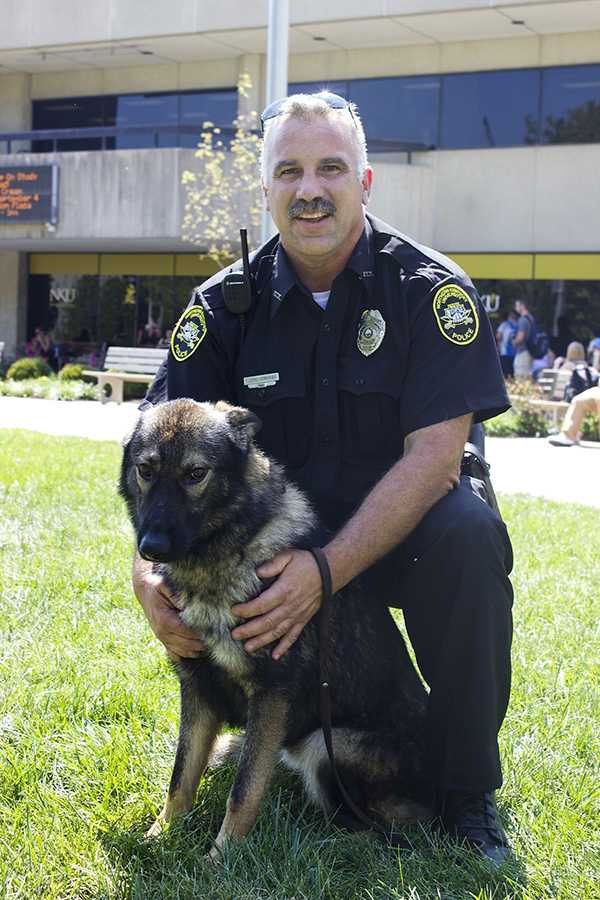Campus police acquire explosives-detection canine
In light of recent attacks, such as the bombing of the Boston Marathon and the shooting at Sandy Hook Elementary School, the NKU Police Department has decided to acquire an explosives-detection canine.
“We’re constantly reviewing our policies and procedures to find innovative and new ways to keep NKU and the surrounding community safe,” University Police Chief Jason Willis said.
An officer from the department traveled to a specialized kennel in Indiana this month to select the canine, named Arritt. It is estimated that it will take a month to train the German Shepherd.
The funding for this acquisition comes from grants from the United States Department of Homeland Security as well as the law enforcement division of Hamilton County, Ohio. The cost of acquiring and training this canine is estimated to be between $12-13,000, with minimal expected recurring costs, according to Willis.
The dog’s sole purpose will be to patrol campus with its assigned officer. However, students are permitted to approach the dog and interact with it as long as duties aren’t impeded. Willis expects the dog to not interrupt routine campus functions, and states he could even see the canine as a “pet away from home” for students.
Sophomore pre-nursing major Vivien Raper said, “I think that the police department getting an explosives dog is a good idea. I don’t see any bad in it.”
Willis also states that he is open to allowing neighboring police departments to use the canine if needed.
NKU isn’t the only university to acquire these types of canines. The University of Tennessee-Knoxville acquired explosives-detecting dogs earlier this year, according to the university’s website. Cornell University has explosives-detecting canines as well, according to The Cornell Sun, Cornell’s independent student newspaper.
The dogs detect explosives through scent, as they are introduced to the smell of various explosives from a young age and taught to give a physical cue, such as sitting, when they detect explosive material.
Willis says his department’s number-one goal with this initiative is to keep NKU safe.
“NKU and the Highland Heights area is a safe community,” he said. “We’re always looking for new and innovative ways to keep it that way, and this shows it.”


